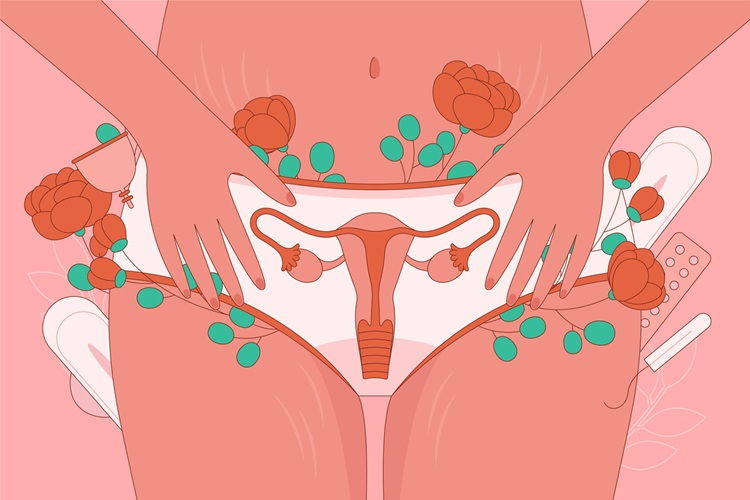The Role of Parents in Adolescent Reproductive Health
Adolescent reproductive health is a delicate topic and crucial to a young person's overall well-being, as it can have lifelong consequences. Adolescence is when young people experience various physical changes that can be both exhilarating and overwhelming. They may feel proud of their developing bodies but unsure how to handle the new experiences. Just as physical changes, it also brings new emotional experiences, such as the desire for sexual relationships.
Understanding adolescents' unique needs and concerns is important to ensure they have the information and resources to make informed decisions about their health and overall well-being.
What is the role of parents in their teenage reproductive health?
Parents strongly impact whether a teenager makes safe decisions for themself. Research(1) shows that teens who discuss sex, relationships, and pregnancy with their parents:
- Become sexually active later
- Use condoms and birth control more often if they have sex
- Have sex less often and have better communication with their romantic partners.
In this article, we will explore different aspects of adolescent reproductive health and how parents can positively impact the well-being of their teens in this regard. Let's start by discussing some of the key things to remember when considering reproductive health in adolescents.
Essential Reproductive Health Subject to Discuss with Adolescents
Puberty
Puberty refers to the physical aspect of adolescence in terms of sexual maturity and becoming capable of reproduction. During puberty, adolescents experience many physical and hormonal changes. This includes the onset of menstruation, the growth of breast tissue, and the development of other secondary sexual characteristics.
These changes can be confusing and overwhelming, and adolescents need to have access to accurate information and support to help them understand and cope with these changes.
Menstrual Health
Menstruation is a normal part of the reproductive cycle for women and girls, but it can also be a source of discomfort and inconvenience. Adolescents must be aware of the basics of menstrual hygiene and have access to menstrual supplies. In addition, they might experience menstrual-related issues like cramping, heavy bleeding, and erratic cycles; if this happens, they must get proper medical attention.
Sexual Health
Sexual health, including STIs, and HIV/AIDS, is a crucial issue to consider when discussing health in adolescents. Teens should be informed about protecting themselves from STIs and access testing and treatment if they suspect they may have been exposed. Delaying sexual activity has been shown to improve young people’s lives in many ways:
- Reducing STI transmissions
- Increasing chances of high school graduation
- More satisfaction with romantic partners
- Lower divorce rates later in life
- Lower reported depression symptoms in the short term (2).
Contraception
Sexually active adolescents should be aware of their options for avoiding pregnancy and sexually transmitted infections (STIs). Numerous contraceptive methods are available, including hormonal, barrier, and long-acting ones. Teenagers should have the opportunity to discuss their options with healthcare professionals.
Parents-Adolescent Reproductive Health Discussion
Addressing adolescent reproductive health can be a challenging experience for many parents, too (3). Parents may struggle with the following:
- Navigating sensitive and personal topics
- Addressing cultural or religious objections
- Balancing privacy and oversight
- Managing conflicting beliefs and values
- Accessing appropriate resources and services.
As challenging as it may be, this time is also an opportunity for parents to help their children build a foundation of well-being that will last a lifetime and foster a stronger relationship with them. Below are a few things parents can consider to achieve this.
Communication
First and foremost, it's key for parents to be approachable and to encourage open and honest communication with their children. It is best to be good listeners, allow their children to lead the conversation, and reassure them that there is no silly question. By creating a safe and comfortable environment for discussions about sensitive topics, parents can help ease any awkwardness and allow honest conversations.
This can be a challenging but rewarding experience, as it lets parents understand their child's perspectives and offer guidance and support.
Preparation
It is best to start discussing these issues with children before puberty and mentally prepare them for these changes. Teaching children about the changes they can expect during puberty helps them prepare for the physical, emotional, and social changes that are part of growing up. Education can allow children to understand why their bodies are changing, what is normal, and what is not. This can help reduce anxiety and confusion.
Education
Parents must also seek accurate and comprehensive information about adolescent reproductive health. This includes information about anatomy and physiology, contraception, and STIs. They may have yet to get the answers on the spot, but they can revisit the questions after becoming more knowledgeable on the topics. By educating themselves on these topics, parents enable their children to make informed decisions about their health.
Healthcare Access
One of the best ways parents can positively influence their adolescent children's well-being is by ensuring they access confidential and non-judgmental healthcare services. This can include preventive care, gynecological exams, and STI testing and treatment. By working with healthcare providers, parents can ensure their children receive the care they need and deserve and guide them toward a healthy and fulfilling life.
Addressing Cultural Stigmas
It should also be noted that it is good to discuss the cultural objections and stigmas associated with sexual and reproductive health in general with adolescent children. This can help break down the barriers that prevent adolescents from seeking information and care related to their sexual and reproductive health.
Community Resources
Community resources like schools, health institutions, and other organizations can also play a critical role in ensuring adolescents access comprehensive sexual and reproductive health education and information. Parents are partly responsible for seeking out these resources for their children.
Responsible Decision-making
Parents should encourage their children to make responsible and informed decisions regarding reproductive health while respecting their privacy and independence. This can be a delicate balance. However, fostering open communication and offering guidance and support helps children make the best choices. Adolescents educated about puberty and adolescent issues are better equipped to avoid harmful situations. For example, they may be less likely to engage in risky behaviors like substance use or early sexual activity.
Conclusion
Finally, parents can always ask for support and guidance from trusted friends, family members, or healthcare providers. By taking a few important steps, such as encouraging open communication, seeking out accurate information, and building partnerships with healthcare providers, parents can help their children navigate adolescence's challenges and build the foundations for a fulfilling life.









Comments (0)